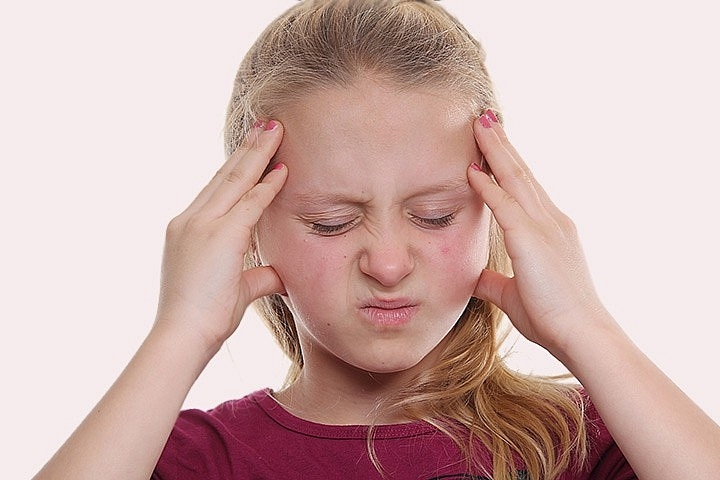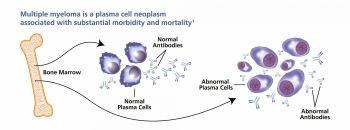What Are The Causes of Frequent Headaches
 |
| What's wrong with frequent headaches? |
| Table of Content |
Frequent headaches happen to quite a few people, severely reducing the quality of life. Headache symptoms may just be the effect of an unstable psychological state.
However, this can also be a manifestation of a certain disease if the headache is frequent and does not go away completely.
Frequent headaches are a symptom of what disease?
♦ Impact of some chronic diseases
Headache is a common symptom of many chronic diseases such as diabetes, lupus erythematosus, fibromyalgia, etc. If you often have headaches, the first thing you need to do is go to the hospital for examination and treatment. necessary tests and performed according to the professional prescription of the doctor.
♦ The effect of sinusitis
Sinusitis has many symptoms, which can include headaches, migraines. In fact, approximately 90% of people with sinusitis experience migraines. Sinusitis causes persistent headaches that need to be prevented with the use of specific antibiotics. From sinusitis, persistent headaches will also be eliminated.
♦ Brain tumor
If a headache persists for months that don't go away, this could be a warning sign of a tumor in the brain. Severe, never-before-seen headaches are a symptom that should be taken seriously. The doctor may ask the patient to have a CT scan of the brain, magnetic resonance imaging to detect the exact cause of the disease.
♦ Severe anemia
Severe anemia also causes headaches. If you see symptoms of headache accompanied by dizziness, fatigue, etc., you may have iron deficiency anemia. In this case, just taking iron supplements can treat the disease.
♦ Migraine headache
Also known as vasomotor headache or cerebral vasomotor disorder. This disease has a very negative impact on the health and quality of life of patients. However, this disease is not life-threatening except for a special form such as Migraine with neurological complications. Women suffer from migraines more often than men, with three times more women than men. The disease occurs at any age, but is most common in people under 45 years of age, and is rarer in the elderly and children.
Problems other than Pathology
♦ Frequent stress and anxiety
If you are having a difficult problem in your life that makes you unable to stop worrying, the problem of headaches and migraines may often appear. Therefore, if there is a problem causing stress in life or work, each person needs to know how to relieve and balance. Chronic stress is one of the main causes of chronic headaches.
♦ Dehydrated body
Habits as simple as drinking too little water can lead to headaches. When you do not drink enough water, the blood supply to the brain is reduced, the oxygen supply to the brain is also lacking, this is the cause of headaches.
♦ Hormonal changes
A surprise for women is that their headaches can be related to… the menstrual cycle. A drop in the hormone estrogen just before a period can cause headaches in some women. Persistent headaches also often occur with postpartum women, women going through menopause. Symptoms of headaches combined with abdominal pain make many women extremely uncomfortable, miserable, unable to concentrate on work.
♦ Disruption of time, living habits
Disturbance of the biological clock is one of the problems that cause headaches. If it lasts, it will give people a nagging headache that won't stop. This situation often happens to people who often have to stay up late at work, or move between different time zones.
♦ Drinking too much coffee
If drinking coffee in low or moderate amounts, it will stimulate the mind, helping the drinker to be more alert. However, if you drink too much and continuously, coffee will cause headaches. Therefore, this is also a cause of persistent headaches in addition to pathology, people need to pay limited attention.
What to do when you have a headache?
If headaches occur frequently, you should go to the neuroendocrine specialist soon for an accurate diagnosis and appropriate treatment. Don't let the pain go on for too long to see a doctor because the condition will get worse.
In addition, some ways to help support pain relief in cases of mild and intermittent pain are as follows:
♦ Drink plenty of water: It sounds simple, but a lot of headaches stem from dehydration.
♦ Eat watermelon: Similar to drinking water, if the headache is caused by dehydration, watermelon will be a sweet and useful pain reliever. Because 92% of the composition of watermelon is water.
♦ Apply ice at the temples: The artery that supplies blood to the meninges is located just below the thin bone in the temple. When you have a migraine, the meninges are swollen. Therefore, lowering the temperature of the blood through the meninges may help limit the sensation of pain.
 Is Pain A Disease or A Symptom of Disease? Is Pain A Disease or A Symptom of Disease? Countless people live with the burden of chronic pain. Is Pain A Disease or A Symptom of Disease? |
 14 Most Common Andrological Diseases That Every Man Should Know 14 Most Common Andrological Diseases That Every Man Should Know Learning about andrological diseases is essential for men to detect and treat promptly, helping to limit complications later, according to andrologists. |
 Multiple Myeloma: Symptoms, Causes, Diagnosis and Treatment Multiple Myeloma: Symptoms, Causes, Diagnosis and Treatment Multiple myeloma is cancer that forms in a type of white blood cell called a plasma cell. Healthy plasma cells help you fight infections by ... |























